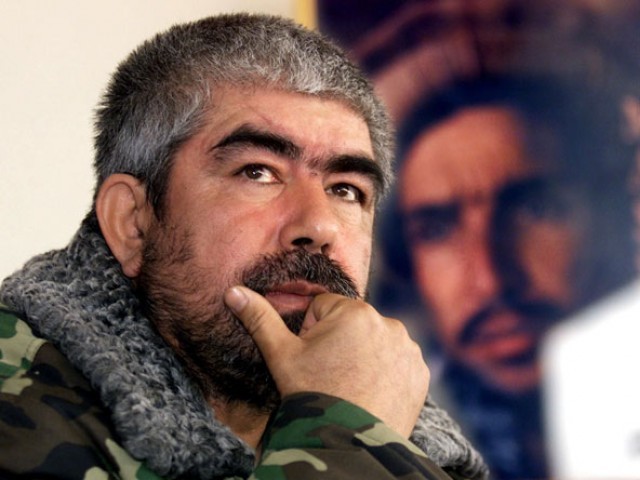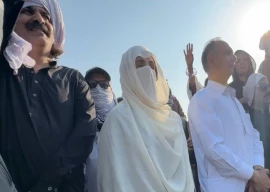
Supporters of Dostam, the first vice-president and known Uzbek warlord, have taken to the streets in several northern provinces after posters of Dostam were removed in Mazar-e-Sharif on March 20, on the eve of Nauroz celebrations. Dostam’s Junbash-e-Milli party said Nur — acting governor of Balkh province and an ethnic Tajik — had ordered for the posters to be removed.
Fatal clashes
The Uzbek protesters rally in Maymana, capital of Faryab province, turned violent on Thursday when they clashed with rivals, leaving one person dead and four injured. Provincial police chief Syed Aqa Andarabi, in comments reported, confirmed the casualties.
Supporters of Dostam are demanding the dismissal of Nur, who belongs to the Jamiat-e-Islami party under Salahuddin Rabbani. Both parties are allies in the two-headed national unity government, but, the ethnic division and power struggle discredit their alliance.
A statement by Dostam’s party described the removal of the posters as an “awkward act”. It also demanded the arrest and trial of those responsible for “disgracing” their leader.
Fearful for the future
Senior Afghan political leaders also link the Dostam-Nur tensions with political differences between the two-headed government, as Dostam is considered a close ally of President Ashraf Ghani, while Nur is affiliated with Chief Executive Dr Abdullah Abdullah.
Shahnawaz Tanai, former defence minister, agrees that the problem in the north mainly stems from a political divide and vested interests of leaders. He said the trouble in Mazar-e-Sharif could spread to other parts if not controlled, referring to the killings and destruction in Kabul during the 1990s.

“If leaders in the ruling coalition pursue personal interests, and their supporters resort to violence, this approach could badly harm the country at a time when Afghanistan faces a lot of security challenges,” Tanai, who heads Da Sulhe Ghurzang, a peace movement of mostly former communist Khalqis, told The Express Tribune.
Power game
The current ethnic tension is debated in current affairs programmes on television. The media has criticised both leaders over what is widely believed to be a power struggle.
Independent newspaper Hasht-e Sobh urged both political rivals not to involve the public and warned against potential lawlessness, referring to many such incidents in the past.
“Everyone knows the problem between Dostam and Nur is for control of power and wealth,” an editorial in the paper this week read.
The paper warned both the sides that the Taliban and other armed groups were present in the surrounding areas of key cities like Mazar, Maymana and Sheberghan, and could take advantage of the infighting.
Tearing down Dostam’s posters indicates a lack of political accommodation of opponents. Afghanistan has many political parties, but they are weak and the entrenched leaders, especial former warlords like Dostam, still dominate.
Tracing back history
Afghan analysts say Uzbeks had ruled and influenced Mazar-e-Sharif in the past, especially during the Communist regime and the Mujahideen.
Nazar Mutmaeen, who writes for local and
international media, recalls when the Taliban took control of Kabul in 1996, the then president, Burhanuddin Rabbani, also moved to Mazar-e-Sharif to seek Dostam’s help as the city was a centre of the north at the time, and Dostam had also made it his main base. Mutmaeen told The Express Tribune Tajiks had tried to take control of the city but Dostam, his Gelam Jam militia, and Uzbeks had secured it.
“When the Americans started military operations against the Taliban in late 2001, they tried to make Uzbeks and Tajiks happy and allowed both to operate in the city,” Mutmaeen said. “But when a government was installed, Nur took control of the city as Americans did not have much trust in Dostam and preferred Nur – Tajiks have controlled the city for 15 years.”
Published in The Express Tribune, March 26th, 2016.




1732626034-0/BeFunky-collage-(92)1732626034-0-165x106.webp)



1732621030-0/Express-Tribune-(7)1732621030-0-270x192.webp)
1732622842-0/Express-Tribune-(9)1732622842-0-270x192.webp)







COMMENTS
Comments are moderated and generally will be posted if they are on-topic and not abusive.
For more information, please see our Comments FAQ